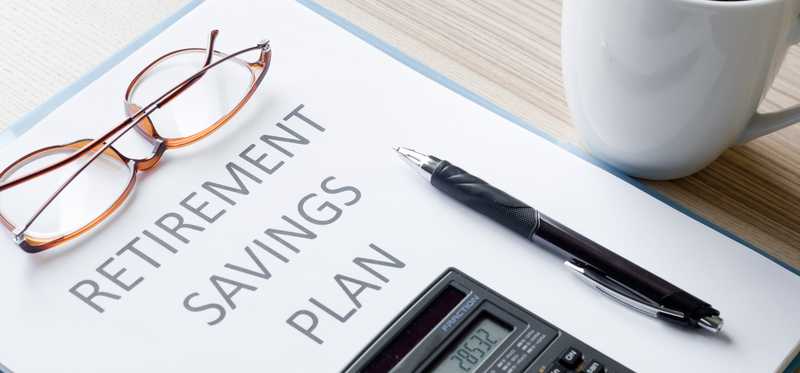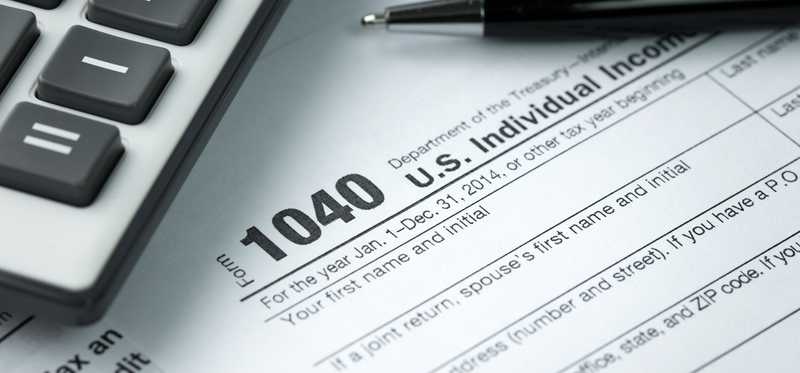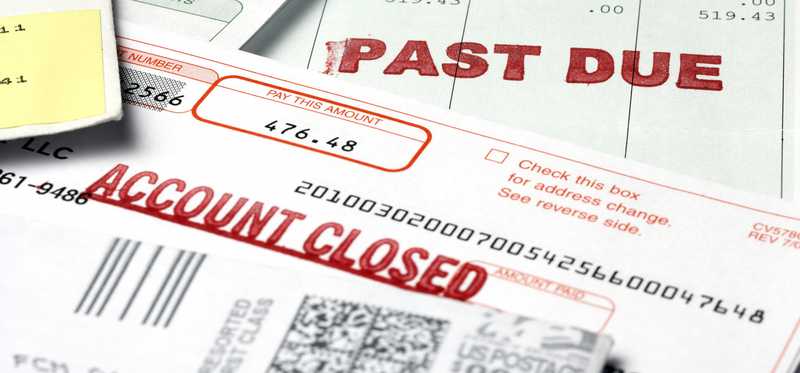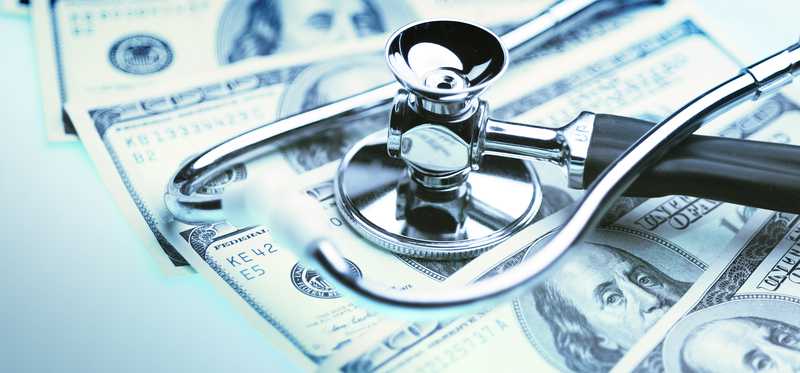18 Expenses You Need to Include in Your Retirement Plan

18 Expenses You Need to Include in Your Retirement Plan
A good retirement starts with a good plan
Many Americans are at a loss as to how much money they need to save for retirement, and as a result, they often don't save enough. Maintaining your financial security into old age requires a detailed estimate of your retirement living expenses, so you know how much you need to save each month and overall. Here are 18 things you need to include in your retirement budget if you want to have all your bases covered.
Previous
Next

1. Housing
Housing is most retirees' largest expense. Out of the $49,952 the average household headed by an adult 65 or older spends each year, $16,668 of that goes toward housing, according to Bureau of Labor Statistics data. Depending on your living situation, this may be a rent or a mortgage payment. Paying off your home before retirement can cut down on your expenses considerably, though you'll still have to pay property taxes.
There are ways to reduce your housing costs in retirement. You could downsize your home, move to a more affordable area, or rent out an extra room. Snowbirds or frequent travelers should consider renting out their entire home while they're away to generate additional income.
Previous
Next

2. Food
The average retiree household spends about $6,326 on groceries per year, but your grocery costs may be lower or higher depending on the number of people in the household, their appetites, and the types of food you buy. Where you live can also impact how expensive your grocery costs are. Use your current monthly grocery bill as a jumping off point for estimating your grocery costs.
Don't forget to include dining out as well. These expenses could increase or decrease in retirement, depending on your habits. Eating out can be five times more expensive than preparing the same meal at home, so you'll have to save a lot more if you intend to dine out often.
Previous
Next

3. Healthcare
Fidelity estimates the average 65-year-old couple today will spend about $285,000 on healthcare in retirement. Other surveys put this number as high as $363,000 for households with high medical costs. If you're a long way off from retirement, you'll need even more because medical costs will continue to rise and the medical inflation rate often outstrips the general inflation rate. The above figures represent your out-of-pocket costs, not including the portion that Medicare pays on your behalf, so don't be fooled into thinking your insurance will cover all of it.
Do your best to maintain a healthy lifestyle to minimize your healthcare costs in retirement. If you plan to retire before you're eligible for Medicare at 65, budget even more for healthcare to account for the extra years you'll have to pay for your own private health insurance.
Previous
Next

4. Taxes
Unless all your retirement savings are in Roth accounts, you will owe some taxes in retirement. How much depends on how much you withdraw from tax-deferred retirement accounts each year and how much you have coming in from other sources like a side hustle or Social Security.
Many retirees find their expenses stay the same or decrease slightly in retirement, so you could end up paying less in taxes, but it also depends on how the tax brackets change over time and there's no way to predict this. You can use today's tax brackets and your estimates of your other living expenses to get a rough estimate of what you might owe, but you should give yourself a little extra cushion just in case.
Previous
Next

5. Transportation
Transportation costs include gas and vehicle maintenance. Urban dwellers may not have a vehicle of their own, but then they'll have to pay for public transportation. If you do have a car in a city, you can expect extra expenses like parking. In the unfortunate event that you car breaks down or is totaled, you may have to purchase a new one so you can get around.
The average retiree household spends about $7,513 on transportation expenses, according to the Bureau of Labor Statistics. But again, your transportation costs could be much lower or higher depending on where you live and how often you travel.
Previous
Next

6. Travel
Many retirees use their newfound freedom to travel the world, but this is not cheap. In retirement, you can't decide on a spur-of-the-moment trip because you'll have to take away money from your food, housing, or healthcare budget, and that could leave you without enough to cover your basic living expenses down the road.
If you know you want to travel in retirement, start planning for it now. Figure out where you want to go and price out the cost of the trip. The cost of traveling to that country could change over time, but this will give you a ballpark estimate.
Previous
Next

7. Big-ticket purchases
Some retirees prefer to stay closer to home but may want to buy some larger items, like a boat, a new entertainment system, or a cabin on a lake somewhere. If you know you want to make a big-ticket purchase in retirement, price out how much the item will cost and keep in mind any insurance, maintenance, or upkeep costs associated with it. Add this amount to your retirement budget.
Previous
Next

8. Utilities
It's easy to forget about the little monthly expenses, like your electricity, water, and gas bills. You may also have to pay someone to come by and collect your garbage once in a while. These are services you can't live without, so you must build them into your budget.
Use your current utility bills as a reference point, but you may have to adjust this up or down if you plan to move in retirement because a larger or smaller home or moving to a new area could impact how much these utilities cost you.
Previous
Next

9. Insurance
You'll still need auto, homeowners or renters, and health insurance in retirement. Costs for home, auto, and renters insurance are highly individual and depend on where you live, your home or vehicle, and your previous claims history. Use your current insurance rates as a baseline but know that these could go up or down over time.
Most retirees use Medicare for their primary health insurance, and this has its own deductibles, copays, and premiums. Medicare Part A is free for most adults and Medicare Part B charges the same amount to all but the highest earners, but the premium amount could still rise over time. You could also pay extra if you choose Part D (prescription drug coverage) or if you purchase a Medicare supplement policy or vision or dental coverage.
Previous
Next

10. Any debt
Ideally, you won't be carrying significant amounts of debt into retirement, but if you are, you must include this in your budget as well. That's not difficult to do for loans with a predictable monthly payment, but it can be challenging for credit card debt where your monthly payment can vary and the balance can grow rapidly.
Do what you can to pay this debt down before you reach retirement. Consider transferring your credit card balance to a card with a 0% introductory APR or taking out a personal loan to stop your balance from ballooning much further. Then, figure out how much you owe and add this to your retirement expenses total.
Previous
Next

11. Subscriptions
You'll probably want to keep your cable and/or streaming services, internet, and cell phone in retirement, so you need to include these costs in your retirement plan as well. If you're currently in a trial or introductory period where you're paying a special rate, base your estimated subscription cost on the full price of the service instead of the introductory rate.
Other possible subscriptions include meal kit services, gym memberships, magazine subscriptions, or online services. Make a list of all the subscriptions you're currently signed up for and think about which you plan to continue using in retirement. Figure out how much these will cost you at their current price and use this as your baseline but understand that these costs could rise over time.
Previous
Next

12. Clothing
You may not buy clothing in retirement as often as you did when you were younger, but you will still need some new clothing here and there. Bureau of Labor Statistics data says the average household headed by an adult 65 or older spends about $1,193 on apparel and footwear each year so you can use this as your baseline. But like everything, it depends on your spending habits. If you like to buy new clothes often or you like designer brands, you'll probably have to budget more than the average for clothing.
Previous
Next

13. Home maintenance
Appliances break down over time or yours may just appear dated and you may want to update them. You could also need a new roof at some point. These things aren't cheap and if you aren't prepared for them, you'll have to steal money from other areas of your budget, like the money you set aside for food or travel. Estimate how much it would cost to replace the major appliances and systems in your home and add these costs into your budget. Renters shouldn't have to worry about this because their landlords should cover the costs of major appliance or system repairs.
ALSO READ: 3 Hidden Costs That Could Sabotage Your Retirement
Previous
Next

14. Entertainment
You'll probably still enjoy going to the movies or a concert in retirement or participating in other hobbies you enjoy today. Figure out approximately how much money you spend on hobbies and other entertainment-related items today and use this as your baseline. But remember, you may end up spending more on these items in retirement because you'll have more free time to devote to the things you enjoy.
Previous
Next

15. Long-term care
It's difficult to predict whether you'll need long-term care in retirement because you don't know whether an illness or unexpected injury will leave you unable to care for yourself. But if you have a family history of an incapacitating disease like dementia or Alzheimer's, you should consider planning for long-term care expenses in retirement.
Costs vary depending on whether you move to a nursing home or are cared for at home, whether you have to hire professional help, and how much help you need. Where you live also plays a role in the cost. Research how much long-term care costs in your area and look into long-term care insurance policies.
Previous
Next

16. Charitable giving
Many retirees enjoy sharing some of their wealth with charitable organizations and others who are less fortunate. This is a noble thing to do, but it's not a smart decision if doing so puts your own financial security at risk. That's why you should build some extra money in your budget for giving away. If you're not able to do this, look for other ways you could help charities, like donating goods or volunteering your time.
Previous
Next

17. Gifts
Holidays and birthdays don't stop once you reach retirement, but you'll no longer have the same stream of income you did in your younger days to pay for gifts. It's difficult to budget for this when you're a long way off from retirement because you don't know exactly who (children, grandchildren, etc.) you will have to buy gifts for or what they will want. Set aside a dollar amount that you feel is appropriate and feel free to adjust that up or down in retirement as needed.
ALSO READ: Gift Tax in 2019: How Much Can You Give Before Having to Pay?
Previous
Next

18. A little cushion
Once you've estimated your costs for all of the expenses listed above, add a few thousand dollars extra if you can afford to do so. This will give you a little extra cushion in case living costs rise more sharply than you anticipated or if you incur an unexpected expense, like a medical emergency, that ends up costing you more than you had budgeted.
Previous
Next

Building the rest of your retirement plan
Use the information here and your personal spending habits to help you determine your estimated annual living expenses in retirement. Then, figure out how much you need to save overall by multiplying this amount by the number of years you expect your retirement to last, adding 3% annually for inflation. A retirement calculator can help. It'll also ask you about your expected investment rate of return. Use 5% to 6% to be conservative, even though your investments may grow faster than this.
The calculator should give you your total estimated retirement expenses. From there, subtract money you expect to receive from other sources, like a part-time job in retirement, a pension, Social Security, or an employer 401(k) match. Create a my Social Security account if you're not sure how much to expect from Social Security. The remainder after you've subtracted all these is how much you must save on your own. Your calculator should also tell you what you need to save per month to hit your goal. Try to save at least this much per month, even if it means cutting back on discretionary purchases or working a little extra to get more money coming in.
The Motley Fool has a disclosure policy.
Previous
Next
Invest Smarter with The Motley Fool
Join Over Half a Million Premium Members Receiving…
- New Stock Picks Each Month
- Detailed Analysis of Companies
- Model Portfolios
- Live Streaming During Market Hours
- And Much More
READ MORE
HOW THE MOTLEY FOOL CAN HELP YOU
-
Premium Investing Guidance
Market beating stocks from our award-winning service
-
The Daily Upside Newsletter
Investment news and high-quality insights delivered straight to your inbox
-
Get Started Investing
You can do it. Successful investing in just a few steps
-
Win at Retirement
Secrets and strategies for the post-work life you want.
-
Find a Broker
Find the right brokerage account for you.
-
Listen to our Podcasts
Hear our experts take on stocks, the market, and how to invest.
Premium Investing Services
Invest better with The Motley Fool. Get stock recommendations, portfolio guidance, and more from The Motley Fool's premium services.